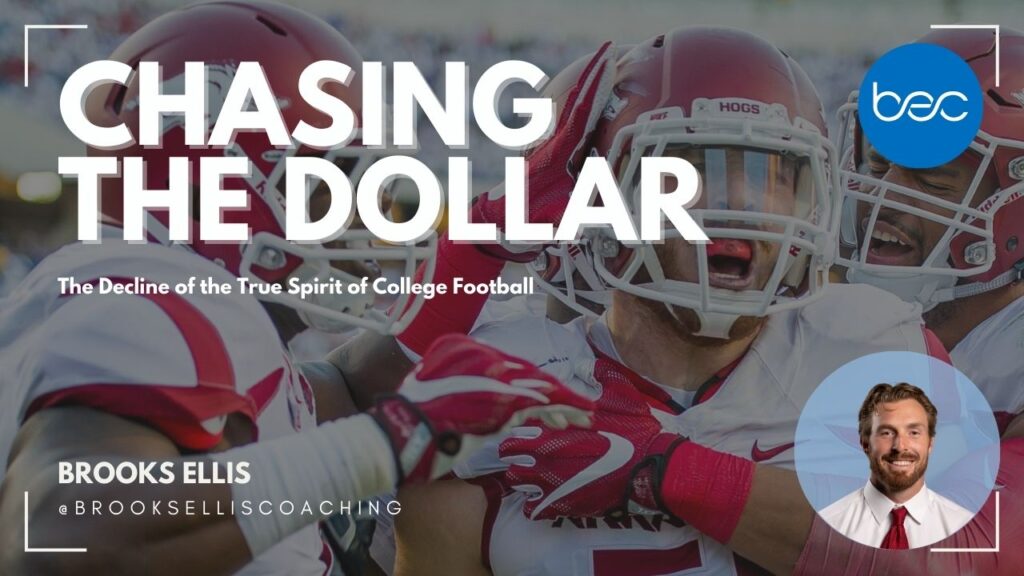As a kid, the thrill of playing sports wasn’t about money, fame, or glamour. It was about learning life’s valuable lessons such as teamwork, camaraderie, communication, and leadership. These teachings extended from the local playground all the way to high school fields, where dreams of scholarships could become reality. But the essence of sport is shifting dramatically. The introduction of NIL (Name, Image, and Likeness) and the transfer portal are altering the landscape, steering players towards a path where money weighs heavier than the game itself.
The Changing Game
Historically, sports were platforms for personal development, teaching resilience in the face of adversity. Football, in particular, was about creating future opportunities and providing a solid foundation for life beyond the field. College football used to symbolize this growth journey. Players, fueled by the hope of one-day going pro, knew that determination and skill were the keys to success. Fast forward to today—those principles are fading into the background as the guardrails structuring the essence of the sport are being dismantled.
A Game Without Boundaries
With the loosening of rules, football is becoming an unrecognizable game. Players are driven by financial incentives rather than passion and dedication. What’s the result? A chaotic landscape where the original reasons for playing are overshadowed by financial gain. The boundaries that once maintained the spirit of the game seem irrelevant. The focus has shifted from nurturing future leaders to chasing monetary rewards.
The Misguided Path of NIL and the Transfer Portal
The change is evident from the grassroots to the pinnacle of college football. The NIL and transfer portal provide players the freedom to choose programs based on financial offerings, disrupting team cohesion and personal growth. Programs are now hunting for players who can bring immediate wins, disregarding the long-term development of their athletes. The unregulated pursuit of money negates the sport’s core principle of progression through adversity and hard work.
Foundations in Turmoil
Teams like Georgia and Oregon illustrate the balance between tradition and modern pressures. While rich NIL funding is a significant resource, these programs succeed not only because of financial prowess but due to their solid foundations. Such teams maintain their effectiveness by developing players holistically, valuing long-term success over immediate gratification. Still, the landscape is awash with programs struggling to find similar success, chasing short-term wins rather than investing in foundational strength.
The Resulting Disarray
As programs attempt to outbid each other for top talent, the game loses more than it gains. The players, though perhaps financially richer, are often deprived of learning the real-life skills that sports traditionally imparted. The driving force behind the game—the passion, the thrill, and the lessons learned—gets lost amidst shifting priorities.
Refocusing on the Core Values
The ultimate purpose of football should be to mold individuals who are equipped for life beyond the game. The current trajectory threatens this goal, emphasizing wealth over wisdom. It’s crucial to refocus on what truly matters—developing players not just as athletes but as individuals.
In conclusion, the trajectory ridden by NIL and the transfer portal has become a contentious pivot point in the sport’s history. As we navigate this rapidly evolving landscape, we must ask ourselves: Are we doing what’s best for the athletes or are we unconsciously restraining them to a life bound by financial chains? The stakes are higher than individual wins—they are about preserving the sanctity of a sport that, at its heart, was always meant to provide much more than profit.







